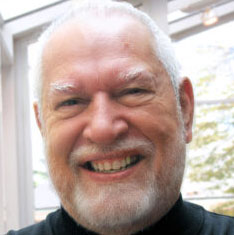Akira writes:
Thanks again for having me on TWiV last Friday. That was a great fun indeed! And I am relieved to find that I did not make too many problematic comments in the show.
Just a couple minor points:
I saw on the TWiV page that my family name is spelled as Ohno (like Apollo Ohno). My family name is actually Ono (without “h”). If you get a chance, could you change? It is not a day-and-night difference, but it is a matter of size: when written in Chinese character (Kanji), “Ohno” means “large field”, whereas “Ono” means “small field”. A small field would be fine for me 😉
Another thing is my misspeaking on dinosaurs in Japan. As Kathy let me realize, I described the lack of dinosaur fossil discovery in Japan in the present tense. What I meant was that a dinosaur had not been found in Japan when I was a young kid. Books for kids explained that since Japan was under the sea, it would be difficult to find fossils of dinosaurs, which were land animals. No longer. There have been dino fossil discoveries in several places in Japan in the past few decades, and nowadays kids in Japan can have a dream of digging out dinosaur fossils without going to foreign countries. I suppose my remark on this can be viewed as just a grammatical error, and probably nobody would care. But if fact checking/correction is important even for non-viral stuff, please let me know. I would be happy to look into the history on Japanese dinosaur digging 🙂
Best,
Akira
Jon writes:
Hello Vincent and friends,
I was listening to episode 357 on my way to work today and a point came up that caught my attention. At one point the twiv gang begins talking about viruses as energy parasites, who harbor no metabolic activity. While based on current knowledge, this is essentially true, I do think it is worth noting that there has been discovery of phages which encode metabolic proteins. Here I have linked a paper (http://www.genomebiology.com/2013/14/11/R123) titled “Metabolic Reprogramming by Viruses in the Sunlit and Dark Ocean”
Long story short, phages in the ocean are able to capture metabolic genes, even photosynthetic metabolic genes (how cool is that) to manipulate host fitness overall, or just directly to shift metabolism in the favor of the replicating viruses.
This is only an example of how viruses can play with host cell metabolism, however, to me it implies that perhaps metabolically active proteins could even play some role in virion or genomic stability outside of a host cell. That may be a bit of a stretch but biology is all about the surprises!
Perhaps this paper or a related one warrants at least a snippet in an upcoming twiv.
I’m writing from Medicine Hat, AB, Canada where today it is a wispy mix of sun and cloud and an oh so comfortable 3oC, 94% humidity and a 7km southward wind.
Keep up the great work, you have managed to create an amazing information filled podcast that is informative enough for me to enjoy but not so needlessly bogged down in jargon that my girlfriend makes me turn it off in the car.
Long time listener and first time writer,
Jon C.
Alan writes:
You all have talked a bit about Kevin Folta’s unfortunate stumble into the GMO limelight, so you’ll probably be interested in the bizarre turn the story has now taken: http://www.buzzfeed.com/brookeborel/when-scientists-email-monsanto
BakerVirusMaker writes:
I seem to recall a #TWIV podcast pick of the week that involved an antibody rating website, but I can’t find it on @profvrr‘s website! Help!
Bill writes:
Many have tried to apply the lessons of the immune system to treating computer viruses. Alas, the comparison is not that useful: they share the math, but with wildly different contact rates.
But a number of TWIVs ago, you folks mentioned “superinfection suppression”, wherein a virus prevents interruption by new infectors.
Hackers do this routinely, and here is a recent slashdot article about the practice:
http://m.slashdot.org/story/298907
I love my weekly dose of hard science from you guys, even if it isn’t exactly in my field.
Bill
Bill writes:
Decline in academia. This blog speaks to it.
https://www.facebook.com/jfgariepyneuro/posts/466442776860755
Judi writes:
Thanks for all you all do…
use this on TWIV or TWIP as you see fit.
http://nowiknow.com/switzerlands-kind-of-gross-incredibly-effective-anti-rabies-weapon/
Judi (retired science teacher)
San Diego is sunny, 75 degrees F , 24 degrees C, slight breeze, 52% humidity — just another day in paradise!
Ted writes:
TWIV 349, “One ring to vaccinate them all,” again elicited responses and references to contemporary anti-vaccinators.
Four years after Edward Jenner’s death in 1823, The Boston Medical Intelligencer-one of two predecessor journals of the New England Journal of Medicine –printed a number of articles concerning smallpox, inoculation, vaccination and a review of a just-published book, “The Life of Edward Jenner, MD, LLD, FRS. Physician Extraordinary to the King, with Illustrations of his Doctrines and Selections from his Correspondence,” by John Baron, MD, FRS., which reflect wisdom undiminished by the passage of 188 years.
The April 17, 1827 issue reported that although the Association of Boston Physicians did not approve a general vaccination for smallpox at that time, they recommended that when vaccination was required the poor could apply to the Mayor for a certificate for free vaccination.
They also proposed that the Boston City Council apply to the Legislature for “An act giving power to the municipal authority, or school committee of any town or city, in the commonwealth, to make it a condition of admission into the public schools, that children shall exhibit satisfactory evidence of having undergone the cowpock.” ( Emphasis, my own) Additionally, should the Legislature pass such a law, they proposed that a general “Vaccination Institute” be established ,”for the preservation and dissemination of the Vaccine matter.”
Interestingly, the Boston Common Council subsequently approved this proposal ,commenting, “It is the first adequate and effectual measure of security we have ever enacted against the introduction of smallpox since Edward Jenner announced the Vaccine Preventive,”( Emphasis, my own) though they left adoption and execution of the proposal to the Commonwealth.
Also, in the April 17th issue, there is this report from the Phil. (Philadelphia? )Museum, ” In other countries of Europe general vaccination is ordered by government; no one who has not had cowpox or smallpox can be confirmed, put to school, apprenticed or married. Smallpox inoculation is prohibited; if it appears in any house, this house is put under quarantine. By such means the mortality of the smallpox of 1818 has been prodigiously lessened... (Emphasis, my own)
On December 19, 1827 there appeared this reprint from the New Haven (Connecticut) ,Herald newspaper,” A case of smallpox occurred in this city last week, which terminated fatally on Sunday. The young lady who was the subject of it had been keeping school, but how the disease was communicated is not known. We are informed that another case exists on York Street. (Yale-New Haven Hospital is presently located at 20 York Street) .
We mention these facts as well for the purpose of cautioning others as to express our astonishment that any person in this community should have arrived to years of discretion without having been the subject of vaccination, the only sure remedy for this dreadful malady. The ease and facility of vaccination leave no ground for excuse, and parents and guardians must lay to themselves the neglect of an important personal and public duty and bear the charge of bringing “evil on the city. ” (Emphasis, my own.)
The October 9, 1827 issue containing a review of Jenner’s biography by his lifelong friend, Dr. John Baron of Gloucester, Mass. in part states, ” To inoculation, vaccination followed which is fairly characterized to be one of the greatest improvements ever made in the practice of medicine.
“During the last sixteen years, the practice of vaccination has been fixed on a permanent basis; its feeble enemies, feeble even in mischief, have sunk into oblivion;and though it has not, like the test of a literary reputation survived its century, little doubt can now be entertained of its eternal success. (Again, emphasis, my own.)
The words of George Santayana are, indeed, true; “Those who cannot remember the past are condemned to repeat it.”
Again, many thanks for your wonderful podcasts.
Ted Splaver, DMD
Adjunct Faculty, Department of Oral & Maxillofacial Surgery
College of Dental Medicine, NOVA Southeastern University, Davie/Ft. Lauderdale, Florida










